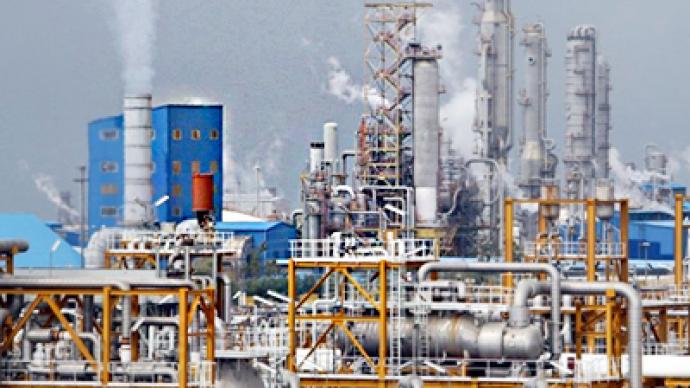Fracking may be more damaging to climate than coal

Hydraulic fracking, the process by which natural gas is extracted from the earth, could create as much as twice the amount of greenhouse gas pollution as coal, according to a recent study at Cornell University.
Prior to the study the general consensus was that fracking was safer and more environmentally friendly than coal. Even US President Barack Obama applauded natural gas as a true clean energy standard. But, that view may have changed.Cornell Prof. Robert Howarth argued in a new study that the process which makes natural gas available actually contributes more to global warming than conventional coal. The gas may burn clean, but the process of obtaining ti is dangerous to the environment. “Natural gas is composed largely of methane, and 3.6 percent to 7.9 percent of the methane from shale-gas production escapes to the atmosphere in venting and leaks over the life-time of a well,” the study said. “These methane emissions are at least 30 percent more than and perhaps more than twice as great as those from conventional gas. The higher emissions from shale gas occur at the time wells are hydraulically fractured – as methane escapes from flow-back return fluids – and during drill out following the fracturing.”The study further added, “The footprint for shale gas is greater than that for conventional gas or oil when viewed on any time horizon, but particularly so over 20 years. Compared to coal, the footprint of shale gas is at least 20% greater and perhaps more than twice as great on the 20-year horizon and is comparable when compared over 100 years."Natural gas produced via fracking is poised to become 45 percent of total production by 2035, according to the US Department of Energy. Obama and a number of industry insiders have continued to praise gas production.“Recent innovations have given us the opportunity to tap large reserves – perhaps a century's worth of reserves, a hundred years worth of reserves – in the shale under our feet," Obama said during a recent speech.Many who support fracking and natural gas have come out to oppose the recent study.“It needs to be understood as a study that has several key assumptions that are highly uncertain or based on limited data points," Christopher Van Atten, Vice President of M.J. Bradley & Associates energy consulting firm, told The Hill. “They focus some of their results on a 20 year period which is not particularly relevant in terms of climate change. Methane only lasts in the atmosphere for about a decade, co2 remains in the atmosphere for about a century. By focusing on the shorter timeframe, they show a greater impact from the shorter lived chemical.”However, the new study is the second study this year which argued fracking and natural gas are not as clean as once thought.












